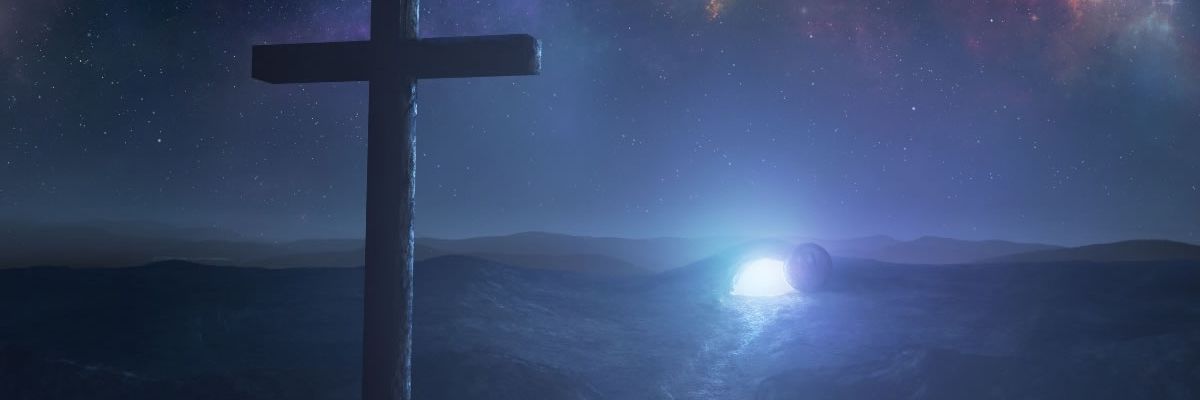
When we describe what happened on the first Easter Sunday, we talk about how Jesus “conquered death.” But that language removes the context from Jesus’ death. He did not die peacefully in his sleep after a lifetime of service and teaching. No, he was executed by a government under pressure from powerful religious leaders who rejected his message of healing and liberation.
Jesus was a victim of injustice but the resurrection is a clear message that God’s love subverts human injustice and that God’s kingdom – the kingdom of justice, love, and peace – is coming despite the powers that oppose it.
The salvation that Jesus’ resurrection brings to all who are oppressed and impoverished is also meant for the non-human members of our earth family. As St. Paul says in the letter to the Romans:
“Creation awaits with eager expectation the revelation of the children of God; for creation was made subject to futility [i.e., unable to flourish], not of its own accord but because of the one who subjected it [i.e., human sin], in hope that creation itself would be set free from slavery to corruption and share in the glorious freedom of the children of God. We know that all creation is groaning in labor pains even until now” (Rm 8:19-22).
We see that in order for humans to be saved, creation must be saved also. And how could we've ever thought otherwise - it's been this way from the very beginning?: “I will remember my covenant between me [i.e., God] and you and every living creature – every mortal being – so that the waters will never again become a flood to destroy every mortal being” (Gn 9:15).
God and every living creature have kept their end of the covenant. Humans have not. But Easter gives us hope that the covenant can be repaired!
We have to admit though that in the face of climate change, biodiversity loss, and other ecology crises, hope can feel like it's out of reach, especially because powerful people (and even well-intentioned people) fail to act on their sacred responsibility to care for our earth family.
While we must sit with our grief and our pain (as Holy Saturday teaches us) we should not despair. As Easter teaches us, rebirth and renewal will triumph over oppression and destruction.
Some perspective might be helpful here. Scientists estimate that the universe is around 13.8 billion years old. It's hard for humans to comprehend time on that scale. How do you measure a billion years so that it makes sense to the human mind, let alone 13.8 billion?
Let’s condense the history of the universe down into the span of one year. How would the milestones of universal history be plotted on this “cosmic calendar?”
| DATE | TIME | EVENT |
| January 1 | the Big Bang happens | |
| May 1 | the Milky Way Galaxy starts to form | |
| September 9 | our solary system starts to form | |
| September 14 | Earth starts to form | |
| September 25 | life on Earth begins | |
| October 2 | the oldest known rock begins to form | |
| November 12 | the oldest fossil of a photosynthetic plant is formed | |
| December 16 | the first worms appear | |
| December 28 | the dinosaurs become extinct | |
| December 29 | the first primates appear | |
| December 31 | 10:30:00pm | the first humans appear |
| December 31 | 11:59:20pm | humans invent agriculture |
| December 31 | 11:59:59pm | the European Renaissance begins |
| January 1 | 01:00:01am | modern science and technology begin |
Looking at this cosmic calendar, you realize just how quickly humans have caused ecological collapse. In less than "an hour" we have forever destroyed a huge percentage of our earth family. We should mourn this destruction.
However, the calendar offers hope too. Fr. John Leydon, SSC puts it this way: “This [calendar] may have a depressing effect in that it might be perceived to stress the point that the ‘end is nigh!.’ This is not the purpose of the analogy. In fact, based on our knowledge of stars, our sun and therefore our planetary system is good for another 5 billion years.”
We have 5 billion years to repair and enjoy our relationship with the rest of our earth family. This is not an invitation to delay – countless lives are suffering and are on the verge of execution right now – but it does remind us that it’s not too late, it’s never too late, to reverse course and make the morally just decision.
“All it takes is one good person to restore hope,” Pope Francis says (LS’ no. 71). “By developing our individual, God-given capacities, an ecological conversion can inspire us to greater creativity and enthusiasm in resolving the world’s problems and in offering ourselves to God ‘as a living sacrifice, holy and acceptable’ (Rm 12:1)” (LS no. 220).
- Log in to post comments
 St. Columban Mission for Justice, Peace and Ecology
St. Columban Mission for Justice, Peace and Ecology